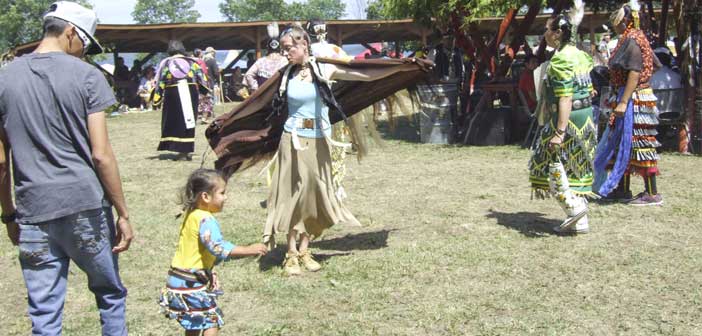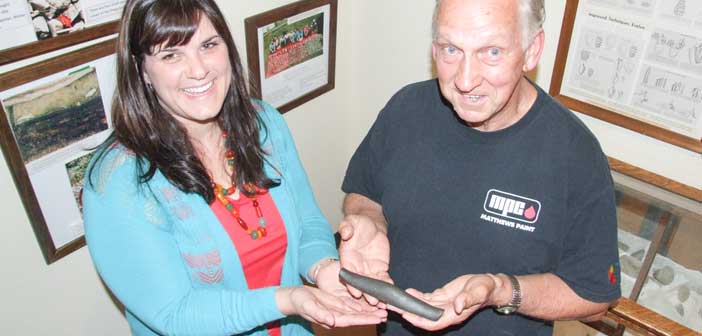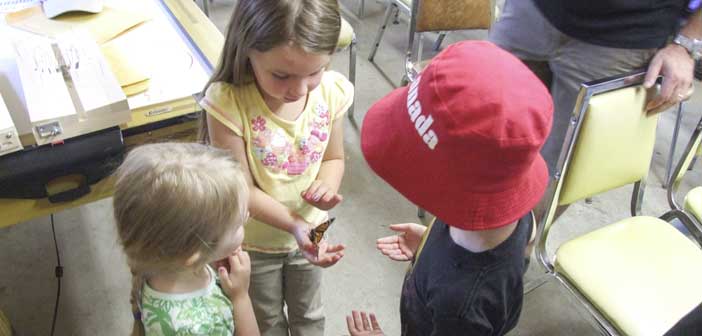SHEGUIANDAH—The Sheguiandah First Nation annual powwow is always a big hit on the circuit, but this year’s event, held under sunny skies on the July 5 weekend, outdid previous years, attracting a record number of dancers and vendors and a huge crowd to enjoy them.
The grand entry was led by venerable elder and veteran Eddie King of South Bay, who held aloft the MIA/POW eagle staff—joined by the staffs and flags from many First Nation communities and organizations.
Elder Marie Eshkibok delivered the invocation in Anishinabemowin before switching to English to welcome all of the visitors to the community. “Thank you for the singers, the dancers and the different nations who have gathered here today,” she said. “Each of us has different sources of knowledge to share this afternoon. Help our visitors to feel welcome, for they are also indigenous to this land.”
The newly constructed central arbour of the dance arena was a focus of a lot of positive attention. The central pole of the arbour had been attacked by vandals the weekend before the powwow, when an attempt was made to burn it down. Thwarted by the rain and damp conditions, the fire had nonetheless scorched the central pole significantly. Local elder and renown carver Gord Waindubence stepped in to turn the negative to a positive, carving a stunning figure of an upright bear into the central pole—obliterating any sign of the base vandalism and turning a negative image into one with an outstandingly positive symbol.
The many vendors encircling the dance arena were kept busy with the large crowds. Jake Sarazin of Onaping Falls was one such vendor. “I only come to a couple of powwows every year and this is one of them,” he said. A Grade 5 teacher, Mr. Sarazin also provides seminars and teachings of First Nations’ culture. Largely self taught, the artisan only sells his works directly.
Vendors are under a lot of pressure these days, noted Dave, an Odawa trader who is a regular on the powwow circuit who is considering retiring someday soon. “The cost of fuel is making it more and more difficult,” he pointed out. Although he is able to sell his wares, largely animal skins and tools for First Nation artisans to create their own works, at wholesale prices, the cost of fuel makes travelling far afield to smaller venues further and further uneconomical.
Luckily, there are still events like the Sheguiandah powwow close by to his summer digs to make coming possible. “This one is great,” he grins. “It is only a few hundred feet away.”





